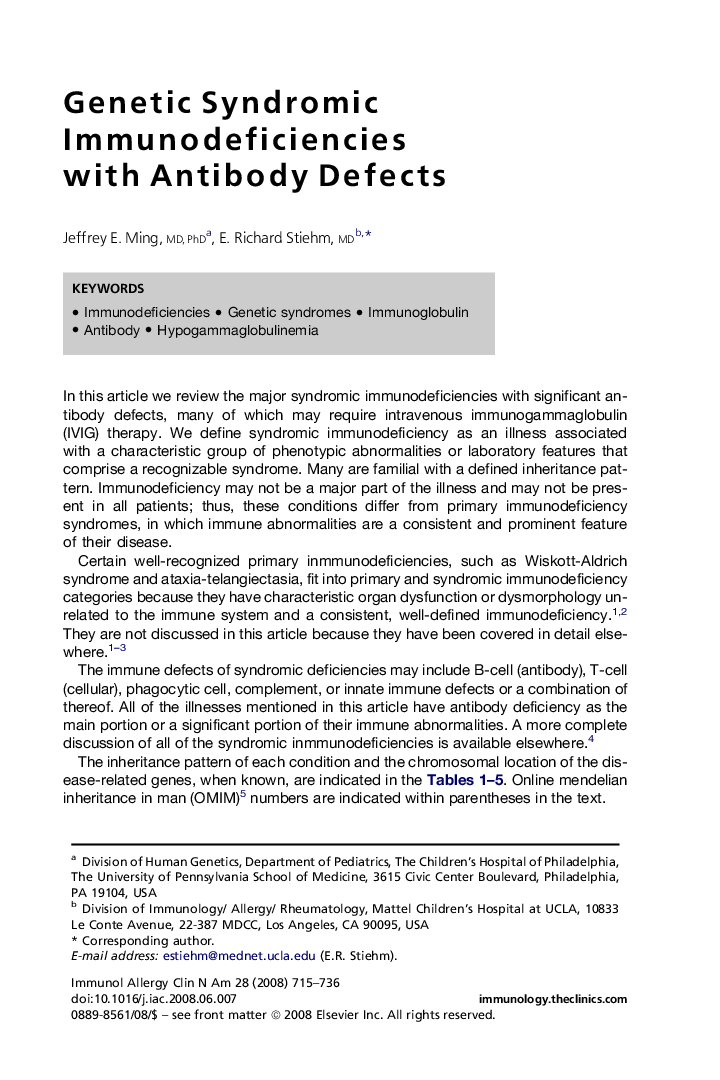| Article ID | Journal | Published Year | Pages | File Type |
|---|---|---|---|---|
| 3355011 | Immunology and Allergy Clinics of North America | 2008 | 22 Pages |
Abstract
This article reviews the major syndromic immunodeficiencies with significant antibody defects, many of which may require intravenous immunogammaglobulin therapy. The authors define syndromic immunodeficiency as an illness associated with a characteristic group of phenotypic abnormalities or laboratory features that comprise a recognizable syndrome. Many are familial with a defined inheritance pattern. Immunodeficiency may not be a major part of the illness and may not be present in all patients; thus, these conditions differ from primary immunodeficiency syndromes, in which immune abnormalities are a consistent and prominent feature of their disease.
Related Topics
Health Sciences
Medicine and Dentistry
Immunology, Allergology and Rheumatology
Authors
Jeffrey E. MD, PhD, E. Richard MD,
